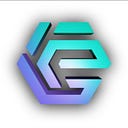Automated Market Maker: Everything You Need to Know
The majority of cryptocurrency consumers use centralized exchanges (CEXs) to purchase and sell crypto assets. They offer better liquidity, a higher trade volume, and faster transaction speeds. These same causes contribute to their shortcomings.
Meanwhile, decentralized exchanges are expanding faster than all other cryptocurrency exchanges combined. As technology and user experience improve, it’s believed that they will ultimately replace CEXs as the most common exchange type. One of the key differences between CEX and DEX is asset pricing, which is based on mathematical calculations rather than transactional agreements.
Unlike most DEX swaps, which were previously negotiated as peer-to-peer sales, AMM pricing is established by algorithms and performed basically as “peer-to-contract” transactions.
What is an Automated Market Maker?
Automated market makers are a component of decentralized exchanges (DEXs), which were created to eliminate the need for middlemen in the trading of crypto assets.
Consider AMM as a computer software that automates the process of delivering liquidity. These protocols are constructed with smart contracts (self-executing computer code) to mathematically set the price of crypto tokens and offer liquidity.
How does Automated Market Maker work?
AMMs enable digital assets to be exchanged automatically and without authorization by utilizing liquidity pools rather than a traditional market of buyers and sellers.
Buyers and sellers offer varying prices for an object on a standard trading platform. When other users deem a posted price acceptable, they make a deal, and that price becomes the asset’s market price. The trading of stocks, gold, real estate, and the majority of other assets is based on this basic market structure. AMMs, on the other hand, use a different approach to trading assets.
AMMs are a type of financial instrument that is specific to Ethereum and decentralized finance (DeFi). This new technology is decentralized, constantly open for trade, and does not rely on traditional buyer-seller interactions. This innovative method of trading assets represents the ideas of Ethereum, crypto, and blockchain technology in general: no single entity controls the system, and anybody may design and participate in new solutions.
What is the Order Book Model?
The central limit order book (CLOB) is a trade execution technique that uses a set of criteria to match orders from buyers and sellers. The major distinction between trading on an AMM-based exchange and trading on a CLOB-based exchange is the technique of fair price creation used to execute the deal. Exchanges that maintain a centralized order book, for example, rely on an aggregated list of buy and sell orders filed by traders on a certain pair. CLOB enables traders to bid (buy) or ask (sell) a preset price for an item.
The spread is the difference between the highest bid and the lowest ask. Because the depth of demand and supply at each price level is great in markets with strong liquidity, spreads are substantially narrower.
Order book models distinguish themselves by allowing customers to submit two types of orders: market orders and limit orders. A market order happens when a trader rapidly buys or sells at the best market price, matching a buyer with a seller who presently has open orders at the top of the book. The best available market price of a particular item is determined by the highest bid and lowest ask.
Order Book Based DEX
Order book based DEXs work similarly to CEXs in a way that users may purchase and sell orders at their desired pricing. The primary distinction is that assets in a DEX are stored in the users’ wallets rather than in exchange wallets.
Order book DEXs can exist on or off the chain. Off-chain order books are more efficient since trades are held off-chain (for example, on a server) until they are matched and executed on-chain. Some of the most prominent DEXs of this sort include dYdX, DeversiFi, and Serum.
Conclusion
Thousands of new users join Decentralized Finance every day. DEXs are an important aspect of the ecosystem since they determine the value of crypto assets in relation to one another. DEXs are undoubtedly going to grow in popularity; it’s only a matter of time before they completely replace our current centralized exchanges.
Order book exchanges now dominate the market for large tokens. Automated market makers, on the other hand, will assist users in obtaining the best possible price for long-tail illiquid coins.
Keep Learning! Keep Climbing!
